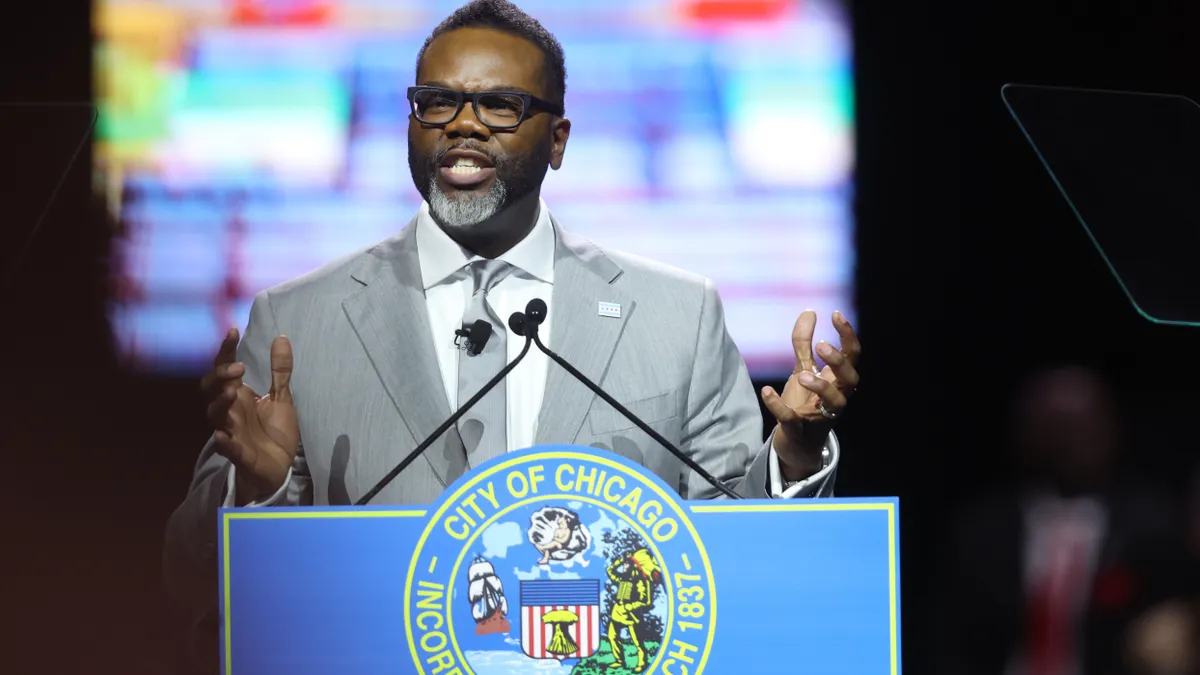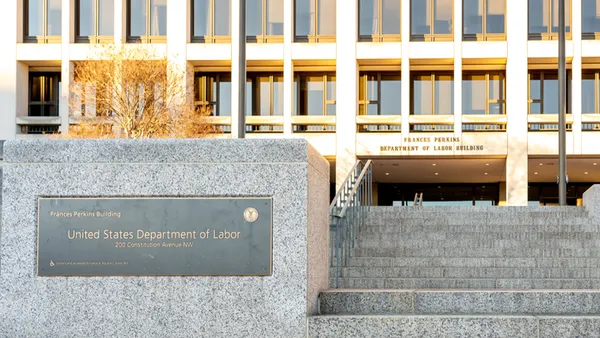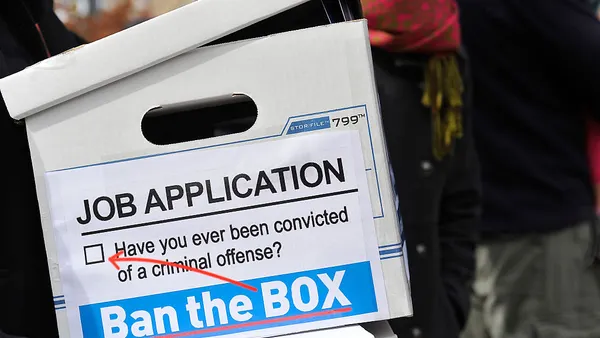The U.S. Department of Justice on Monday announced an investigation into whether the city of Chicago violated Title VII of the Civil Rights Act after Mayor Brandon Johnson made comments at a public event highlighting the race of workers in his administration.
“Our investigation is based on information suggesting that you have made hiring decisions solely on the basis of race,” Harmeet Dhillon, assistant attorney general of DOJ’s Civil Rights Division, wrote in a letter to the mayor.
Dhillon took issue with six specific remarks the mayor made when visiting the Apostolic Church of God in Chicago’s Woodlawn neighborhood on Sunday:
- “Business and economic neighborhood development, the deputy mayor is a Black woman.”
- “Department of planning and development is a Black woman.”
- “Infrastructure, deputy mayor is a Black woman.”
- “Chief operations officer is a Black man.”
- “Budget director is a Black woman.”
- “Senior advisor is a Black man.”
She noted that DOJ had not reached any conclusions about the investigation’s subject matter and would consider all relevant information.
In a clip of the comments posted to YouTube by ABC 7 Chicago, Johnson introduced the topic by noting that two Chicago administrations ago, 70% to 75% of the administration was made up of White workers.
“In my administration, 45% of my administration is Black, 25% is Latin/a, 30% is White, 8% is Asian,” Johnson said at the event. “It is the most diverse administration in the history of Chicago.”
“There are some detractors that will push back on me and say, ‘The only thing that the mayor talks about is the hiring of Black people,’” he said. “No. What I’m saying is, when you hire our people, we always look out for everybody else.”
Title VII complaints about DEI goals ramp up
In recent months, as President Donald Trump and federal agencies have increased scrutiny of diversity, equity and inclusion programs, attorneys have cautioned employers to revisit their policies and ensure quotas, set asides and preferences are not part of their approach to DEI.
In an op-ed for HR Dive, Jonathan Segal, partner at law firm Duane Morris, encouraged employers to go further and re-evaluate programs that are “not illegal per se, but which may encourage illegal conduct,” such as aspirational diversity goals and programs that classify workers into oppressive or oppressed groups based on identity.
While not new, so-called reverse discrimination claims have gained traction in recent months. The 9th U.S. Circuit Court of Appeals on April 25 reversed a lower court’s grant of summary judgment to Clorox, holding the company would have to face a former employee’s discrimination lawsuit because its “representation targets” were sufficient evidence that could sway a jury. And in a similar case earlier that same month, a former senior manager for Accenture accused the company of promoting female workers over him in pursuit of a gender parity goal.
The city of Chicago, specifically, released its first Equity Report in 2024 under Johnson. The administration aspired to a workforce that “reflects the demographics of the City,” the report said, with certain departments laying out goals to diversify staff representation, though none identified specific percentage goals within the report.
The city of Chicago mayor’s office did not respond to a request for comment by press time.














